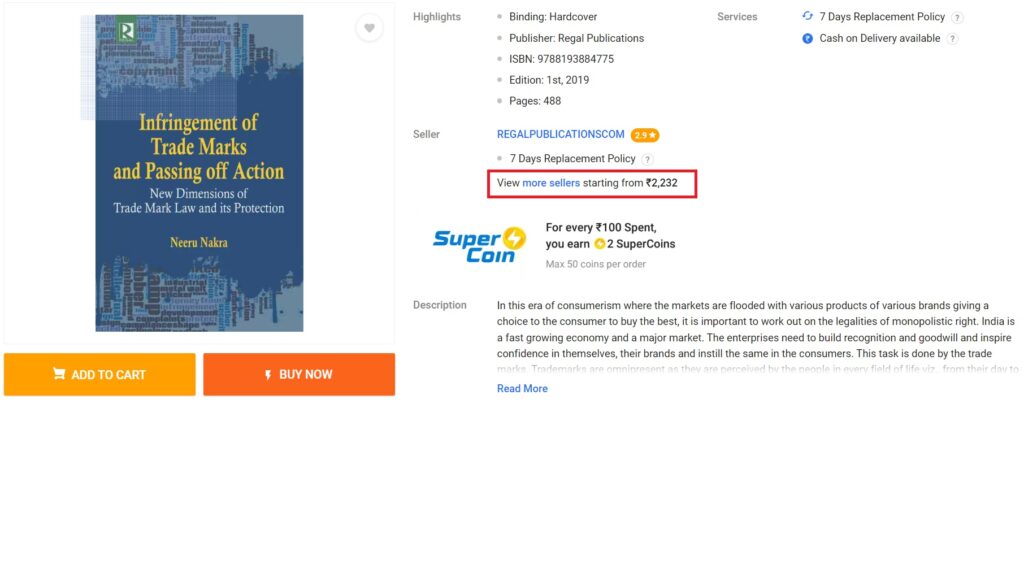As technology grows, people getting used the comfort and ease of e-commerce websites over walk in stores. Prominent websites like Amazon, Flipkart, Meesho have many small businesses selling their products on these websites and earning a good profit.
It’s great for customers, but it’s also proving quite beneficial for small businesses who sell their products on these platforms. Going by the volume of articles online teaching sellers on how to boost sales on e-commerce platforms, it is quite clear that things are working out quite well.
With so many sellers on the platforms, some selling the same products, Flipkart offers it’s sellers an opportunity to “latch on” to other people selling the same products which has been explained in great detail on their YouTube channel.
The principle is quite straightforward. If you as a seller are selling the same product as another seller, and you are authorized to sell the same product, you can latch on to that listing with your offer. Say for sales at a lower price.
For instance, if I’m looking out for a book on trademark passing off and infringement and I find a listing, on the right of the listing will be a link that takes me to more sellers, some of whom offer the same product at a different price.
 While this is all well and good, what happens if a seller who is not authorized to sell the given product or decides to pass off its products as yours by latching on to your listing.
While this is all well and good, what happens if a seller who is not authorized to sell the given product or decides to pass off its products as yours by latching on to your listing.
That is precisely what happened in a recent case that came up before the Hon’ble High Court of Delhi recently in Suit bearing CS (Comm) 492 of 2022 Akash Aggarwal Vs Flipkart Internet Private Limited and Others.
In this case, the suit was filed by Akash Agarwal, a sole proprietor of an entity operating under the mark/name ‘V Tradition’, which sells clothing for women on various retail e-commerce platforms including the defendant’s Flipkart. Mr. Agarwal filed a suit for seeking a permanent and mandatory injunction restraining trademark and copyright infringement, passing off, delivery up, rendition of accounts, damages, and other relief against Flipkart and various other sellers. It was filed to protect its mark from being misused by other third-party unauthorized sellers.
Mr. Agarwal accused Flipkart of encouraging third-party sellers to use ‘latching on’ due to which merchants unrelated to Plaintiff are able to depict ‘V Tradition’ and capitalize on the popularity of Plaintiff’s products and designs. They are also able to put Plaintiff’s product
images and sell their own product under the name of V Tradition.
Plaintiff further submitted that Plaintiff was not the only one aggrieved due to this feature but there were many MSME’s and small
businesses who were at loss due to this feature of ‘latching on’ by Flipkart
The Court thus observed prima facie that Flipkart was permitting third-party sellers to ‘latch on’ to the best sellers in one particular segment of products, resulting in an unfair advantage of the goodwill that resides with popular brands and encashing on their reputation
“This Court is satisfied that such a feature cannot be allowed to be used or offered, to the detriment of the owner of the brand or the person who has created the original product. Consent and authorization of the brand owner and the listing owner would be required before such conduct by any seller is permitted,” the order said.
The Court further observed, that permitting a third-party seller to ‘latch on’, in this manner, to the Plaintiff’s name/mark and product listings is nothing but `riding piggyback’ as is known in the traditional passing-off sense. It amounts to taking unfair advantage of the goodwill that resides in Plaintiff’s mark and business.
The Court was of the opinion that in order to protect Plaintiff’s brand it was important to take down any infringing third part. This was to protect the brand and the reputation built by the plaintiff.
The Court granted an interim injunction in favour of Mr. Aggarwal and restrained Flipkart from allowing any third party ‘latching on’ the mark V Tradition used by Plaintiff or any product of plaintiff, and also ensure no unauthorized seller is misusing the name and the products listed by the Plaintiff. Flipkart was also to disable the feature of ‘latching on’ for plaintiff mark V Tradition till the next hearing. Finally all the URLs of all 45 third-party sellers who have been using product listings were to be disabled or taken down within 48 hours.
Flipkart was granted two weeks to file a reply and the Plaintiff time to file a rejoinder as well before a final order was to be passed in the interim application. While it is yet to be decided, it is a good opportunity for sellers to audit their listings and see if someone else is latching on to theirs.
This article was authored by Ms. Avantika Wasnik.

